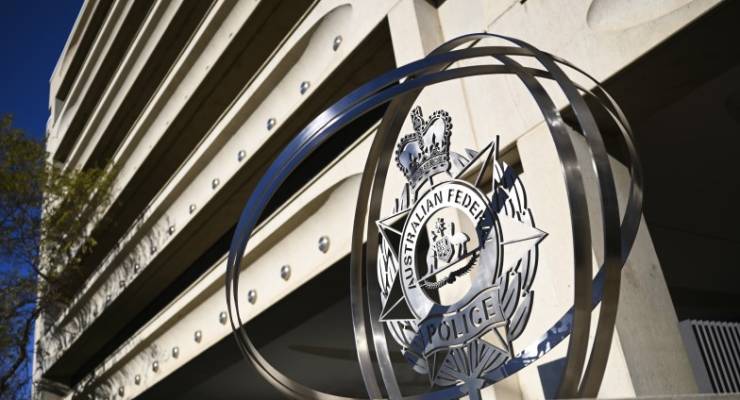
QUESTIONS FOR AFP
The Australian Federal Police will be called before a parliamentary committee to justify its actions following this week’s media raids. The Guardian reports that Joint Committee on Law Enforcement chairman Craig Kelly said it would be “the first order of business” when parliament resumes.
Outgoing Labor Senator Doug Cameron is calling for greater parliamentary oversight, while crossbench senators are planning to push for stronger protections. Centre Alliance is proposing a constitutional referendum on freedom of speech and freedom of the press, and the Greens are proposing stronger whistleblower protections and a charter of rights.
The AFP yesterday refused to rule out prosecuting the journalists at the centre of the raids. News Corp chairman Michael Miller slammed the “criminalising” of journalism, while ABC chairwoman Ita Buttrose reportedly raised concerns directly with the government ($), The Australian reports.
TAX FLIP
Labor will consider reversing its opposition to $20 billion of the Coalition’s $158 billion tax cut package if the government agrees to bring it forward, The Age reports. The cuts in question, worth $2600 for workers earning up to $120,000 per year, are not due until stage two, or 2022, but Treasury spokesman Jim Chalmers says Labor would be open to discussing a change in timing “if it was responsible and if it was affordable and if it prioritises people who are more likely to spend in this floundering economy”.
Meanwhile, the party’s big spending strategy is allegedly “facing the chop” ($) with Chalmers telling The Australian that Labor is looking to return to the centre on economic policy, supposedly abandoning Bill Shorten’s high-taxing, high-spending agenda.
EMISSIONS ON THE RISE
Australia’s greenhouse gas emissions continue to rise, hitting record highs in many sectors, according to federal government’s Quarterly Update, which was released belatedly yesterday. The December 2018 figures show an 0.8% increase on the previous quarter, and 0.7% rise from the same time last year, continuing an upward trend that began in 2013.
Energy and emissions reduction minister Angus Taylor has argued that LNG exports, which are largely behind the increasing emissions, should be given credit for lowering emissions in other countries and reducing overall global emissions. Climate Analytics director Bill Hare called the export argument “dubious,” according to the ABC. Labor’s energy spokesman Mark Butler said it was a government “fantasy” that Australia was on track to meet its emissions reduction targets.
[free_worm]
THEY REALLY SAID THAT?
Well I don’t know. I’m on the other side of the world. I don’t know what the public’s reaction has been at all to this. I won’t know until I get back.
Scott Morrison
Scotty doesn’t know ($) what the public reaction to the AFP media raids has been.
READ ALL ABOUT IT
Defence whistleblower fears secret trial that will gag him
Four dead bodies among mountains of rubbish found at Mount Everest
Nancy Pelosi tells Democrats: I want Trump ‘in prison’ but not impeached
Ben Hoffmann, 45, charged with four counts of murder ($)
Gun expert slaps down US criticism of Australia’s firearm laws ($)
Early voters supported Coalition ($)
NT Police take lessons from Bourke Street attack in mass murder response
More borrowers are falling behind in their home loans and half are heading for repossession
Amazon announces ‘Shazam for clothes’ and drone deliveries in 30 minutes at AI conference
‘Ad hoc and reactive’: Auditor-general delivers scathing report on Victoria’s waste management
Doubling of domestic violence murders in NSW has authorities worried
Grieving mum demands royal commission into ADF suicide epidemic ($)
US-China trade tensions ‘spell Cold War risk’ ($)
$2bn blowout? Fears Metro Tunnel may cost much more than forecast
Judges weighing up appeal after Pell’s victim named in court gaffe
Why some Labor women are not paying it forward to Jodi McKay
CRIKEY QUICKIE: THE BEST OF YESTERDAY
Why is it so easy for police to raid journalists?
“Ananian-Welsh said warrants similar to the one used at the ABC and News Corp this week over stories from 2017 and 2018 have been around since at least 2015. “They’ve certainly had the powers to be doing this for a while … leaking secret government documents has always been frowned upon,” she said. “This shows a change in what they’re prepared to do. It seems like a decision to crack down on leaks from inside the government.” Lidberg said at last count there were 64 new laws and amendments related to national security since 2001. “That’s by far a world leader and a dubious world record,” he said. Authorities also have less-visible powers relating to data surveillance and data retention that Ananian-Welsh said were even more worrying.”
Australia lags behind the rest of the world on a bill of rights
“While the US, like the rest of the Western world, has ratcheted up its restrictions on national security reporting, the first amendment has historically provided important protections in this area. In 1971, The New York Times began publishing details from the Pentagon Papers, which documented 20 years of government lies and misinformation regarding US involvement in Vietnam — a situation reminiscent of the ABC Afghan Files stories, which triggered the AFP’s raid. The Nixon Administration sought to restrain publication of the papers under espionage laws but the Supreme Court, in a landmark decision, held that the first amendment protected publication.”
Media raids prove that Australia needs a conservative bill of rights
“For people like me who’ve long opposed a bill of rights, this is something of a bitter pill to swallow. But the refusal of our major parties to protect basic rights demonstrates that our existing system has failed. And yes, it’s problematic that a bill of rights is — wrongly — automatically associated with the left and identity politics. In fact, a bill of rights, in acting as a check on government, is as much a libertarian and conservative mechanism as a progressive one. And it is about protecting not merely individual rights but the institutions that play a key role in our democracy. The media is a crucial element of any healthy democracy; a bill of rights that protects the workings of a free press would be a fundamentally conservative document, one aimed at protecting the institutions that have served our democracy well over the last century.”
THE COMMENTARIAT
Australia may well be the world’s most secretive democracy – Damien Cave (The New York Times): “The aggressive approach — which Australia’s prime minister, Scott Morrison, has defended — fits with a global trend. Democracies from the United States to the Philippines are increasingly targeting journalists to ferret out leaks, silence critics and punish information sharing — with President Trump leading the verbal charge by calling journalists “the enemy of the people.” But even among its peers, Australia stands out. No other developed democracy holds as tight to its secrets, experts say, and the raids are just the latest example of how far the country’s conservative government will go to scare officials and reporters into submission.”
We must demand a seat at the table when decisions are being made about us – it’s Mabo’s legacy –Jayde Geia (The Guardian): “I try to avoid framing Aboriginal and Torres Strait Islander in a deficit discourse but what remains at the front of my mind is the alarming rise in the number of Aboriginal and Torres Strait Islander suicide and our continuing overrepresentation in the criminal justice system. These two issues need urgent attention. Aboriginal and Torres Strait Islander culture is vibrant and our people remain resilient. Notwithstanding the lack of political will, the Uluru Statement from the Heart continues to gather momentum across the community, business and finance sector. Australia has its first ever Aboriginal minister for Indigenous Australians, Ken Wyatt. We have significant numbers of Aboriginal and Torres Strait Islander university graduates in Australia and across the world at institutions such as Harvard, Cambridge and Oxford. Nevertheless, Aboriginal and Torres Strait Islander people remain the most disadvantaged group in Australia.”
If you aren’t worried about the ABC raids, here’s why you should be – Waleed Aly (The Age/SMH): “If we’d built a more civically minded culture we would not be having debates about, say, whether Julian Assange is a nice guy, or whether what he does is responsible journalism. We would instead be asking whether the basic elements of the crime he’s alleged to have committed against America – encouraging a whistleblower to disclose classified information – are the same basic elements of so much investigative journalism.”
HOLD THE FRONT PAGE

WHAT’S ON TODAY
Brisbane
-
Former US vice president and leading climate change advocate Al Gore will appear alongside QLD Premier Annastacia Palaszczuk, discussing the economics of climate change, to mark the end of the first ever Queensland Climate Week.
-
University students will protest the Queensland government’s Adani approvals, with Greens MP Michael Berkman, Maritime Union of Australia QLD secretary Bob Carnegie and elder Uncle Sam Watson to address the rally.
Sydney
-
NSW Minister for Energy and Environment Matt Kean will discuss how we can manage our energy transition, alongside TransGrid CEO Paul Italiano and Energy Consumers Australia CEO Rosemary Sinclair.
-
A “Love/Machine” panel will discuss the business, political, social, moral and legal implications of digital avatars on everyday life as part of Vivid 2019.
-
The Awesome Foundation will host Awesome Sauce, with five ideas to make Sydney more awesome for young people.
Adelaide
-
Former Australia Council for the Arts chief Tony Grybowski, who has been charged by the Marshall Government to lead the development of a new arts plan for South Australia, will speak alongside Adelaide Festival Centre CEO Douglas Gautier and Lord Mayor of Adelaide Sandy Verschoor.
Melbourne
-
Victorian Department of Treasury and Finance Secretary David Martine will discuss the newly released Victorian state budget.
-
Professor Rangi Matamua, Associate Dean Postgraduate at the Faculty of Māori and Indigenous Studies at the University of Waikato, will give a lecture on Matariki, sharing his knowledge and highlighting connections between cultural knowledge and science.











They need to scrap/ban media(marketing actually) budgets from all so called “security” agencies(businesses).
They need to scrap/ban media(marketing actually) budgets from all so called “security” agencies(businesses).
Doug Cameron, us much as I’ve admired your valiant, but ineffective attempts to prevent the decline of ALP contributions to these book burning laws, the security people your committee will pleasantly chat with will all be leaving the room afterwards single handedly scratching both sides of their noses at once.